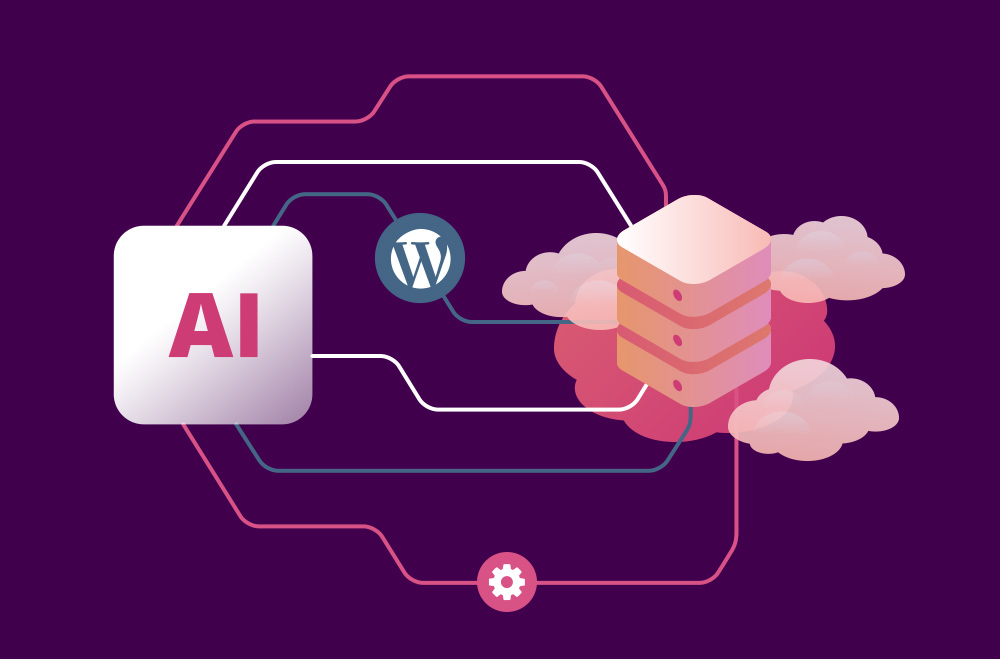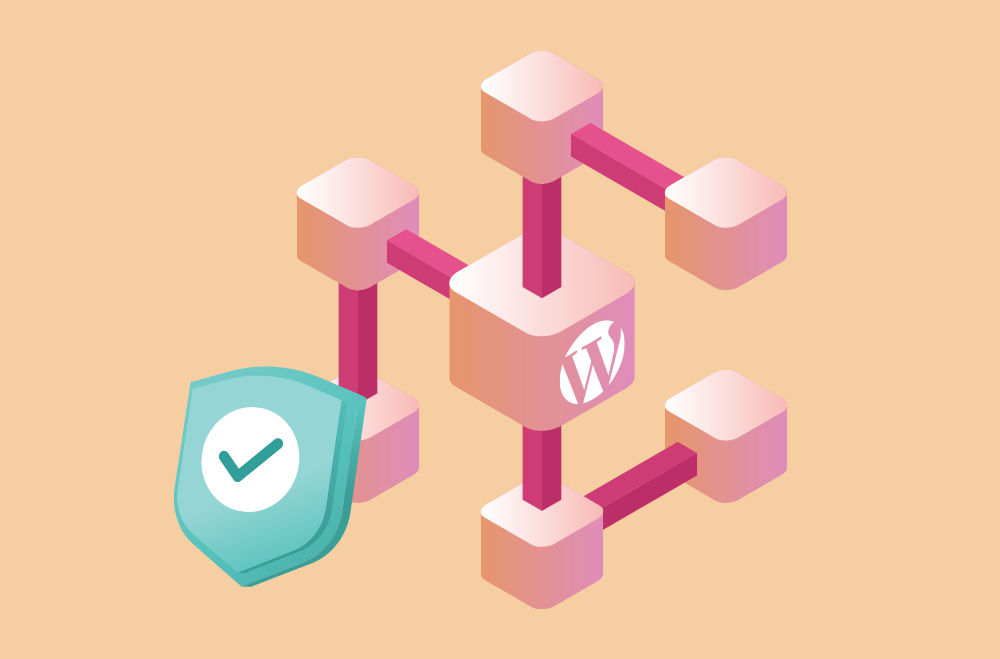
I proprietari di siti WordPress sono costantemente sotto pressione per garantire velocità, sicurezza e affidabilità nel frenetico mondo digitale odierno. Con l'avvicinarsi del 2025, queste esigenze sono diventate imprescindibili. Tempi di inattività, prestazioni lente e protocolli di sicurezza deboli possono significare perdita di visitatori e fatturato. È qui che entra in gioco l'intelligenza artificiale (IA). Non più solo una parola d'ordine, l'IA sta rapidamente trasformando il funzionamento dell'hosting WordPress, rendendo i siti web più intelligenti, veloci e più reattivi alle esigenze degli utenti.
Questo articolo esplora il ruolo crescente dell'intelligenza artificiale nell'hosting WordPress e il motivo per cui sta diventando un elemento rivoluzionario per prestazioni, manutenzione ed esperienza utente. Dai sistemi di caching basati sull'intelligenza artificiale ai firewall intelligenti e al ridimensionamento predittivo, gli ambienti di hosting si stanno evolvendo per soddisfare le esigenze moderne. Che si gestisca un piccolo blog o un sito aziendale, capire come l'intelligenza artificiale si integra nella configurazione del proprio hosting è fondamentale. Continuate a leggere per scoprire come l'intelligenza artificiale può aumentare l'affidabilità del vostro sito, ottimizzare le risorse e salvaguardare la vostra presenza digitale.
Dal 2022 al 2025, l'hosting WordPress potenziato dall'intelligenza artificiale ha registrato una rapida crescita, con un aumento dell'adozione dal 14% all'85%, trainato da significativi miglioramenti in termini di prestazioni, uptime, sicurezza ed esperienza utente personalizzata negli ambienti di hosting globali.
L'intelligenza artificiale (IA) è la scienza che progetta macchine o software in grado di simulare l'intelligenza umana per svolgere compiti come l'apprendimento, l'analisi dei dati, la risoluzione di problemi e il processo decisionale. Nel mondo dell'hosting web, l'IA va oltre la semplice automazione. Alimenta sistemi avanzati in grado di adattarsi in tempo reale, imparando dal comportamento del server, anticipando le esigenze degli utenti e applicando automaticamente miglioramenti in termini di prestazioni, sicurezza e scalabilità.
Ciò è particolarmente importante per l'hosting WordPress nel 2025, dove tempi di inattività, vulnerabilità di sicurezza o velocità ridotte del sito possono danneggiare la fiducia degli utenti e il posizionamento SEO. L'intelligenza artificiale rende gli ambienti di hosting più innovativi e resilienti, gestendo attività complesse che tradizionalmente richiedono un intervento manuale. Dal bilanciamento del carico e dalla scalabilità predittiva al rilevamento intelligente delle minacce e alle ottimizzazioni in tempo reale, l'intelligenza artificiale consente ai siti WordPress di rimanere veloci, sicuri e affidabili anche durante picchi di traffico imprevedibili. Con l'aumento delle aspettative digitali, l'intelligenza artificiale diventa uno strumento cruciale per i provider di hosting e i proprietari di siti che mirano a rimanere al passo con i tempi.
L'intelligenza artificiale è profondamente integrata nelle moderne piattaforme di hosting WordPress attraverso tecnologie che automatizzano in modo efficiente l'ottimizzazione delle prestazioni, migliorano la sicurezza e scalano le risorse. Invece di affidarsi esclusivamente al monitoraggio manuale o alle modifiche reattive, i sistemi di intelligenza artificiale analizzano costantemente il comportamento degli utenti, i modelli di traffico e lo stato del server per adattare le configurazioni di hosting in tempo reale. Ciò consente ai siti WordPress di rispondere dinamicamente ai cambiamenti senza l'intervento dell'utente, migliorando velocità, uptime e affidabilità su tutti i dispositivi.
Alcune delle funzionalità più efficaci basate sull'intelligenza artificiale includono:
L'intelligenza artificiale migliora quasi tutte le funzioni principali dell'hosting WordPress, dalle prestazioni del server dietro le quinte alla SEO front-end. A differenza degli strumenti di hosting tradizionali, le funzionalità basate sull'intelligenza artificiale offrono intelligenza in tempo reale e auto-ottimizzazione. Questi strumenti si adattano ai cambiamenti del traffico, identificano i rischi in anticipo e mantengono il tuo sito web operativo al massimo dell'efficienza. Con la crescita della domanda digitale nel 2025, l'intelligenza artificiale consente all'hosting WordPress di soddisfare le aspettative degli utenti con precisione e affidabilità.
Ecco le aree chiave in cui l'intelligenza artificiale apporta miglioramenti significativi:
1. Ottimizzazione delle prestazioni
2. Manutenzione automatizzata
3. Sicurezza migliorata
4. SEO e analisi
Velocità e uptime sono imprescindibili per i siti web WordPress nel 2025. I visitatori si aspettano caricamenti di pagina immediati e un accesso ininterrotto; i ritardi possono portare a un rimbalzo, alla perdita di conversioni o a un calo del posizionamento SEO. L'intelligenza artificiale è fondamentale per garantire che queste aspettative vengano soddisfatte automatizzando in tempo reale le attività critiche per le prestazioni. A differenza degli strumenti di monitoraggio tradizionali, l'intelligenza artificiale impara dai modelli passati, si adatta all'utilizzo attuale e affronta proattivamente i potenziali rallentamenti prima che si verifichino.
Grazie ad algoritmi intelligenti e analisi predittive, l'intelligenza artificiale può ottimizzare la reattività del server e garantire tempi di attività costanti anche durante periodi di traffico intenso. Può ridistribuire il carico del server, memorizzare nella cache i contenuti più popolari e reindirizzare gli utenti al nodo più veloce disponibile, migliorando sia le prestazioni del backend che la distribuzione del frontend. I principali miglioramenti includono:
Assolutamente sì. Uno dei vantaggi più significativi dell'intelligenza artificiale nell'hosting WordPress è la sua capacità di gestire e supportare automaticamente ambienti scalabili. Anche quando il traffico aumenta durante il lancio di nuovi prodotti, campagne stagionali o contenuti virali, l'intelligenza artificiale può garantire che il tuo sito rimanga veloce e stabile. A differenza del ridimensionamento manuale, che richiede una supervisione costante, l'intelligenza artificiale si adatta in tempo reale, ottimizzando le prestazioni senza l'intervento umano.
Monitorando costantemente le metriche del server e il comportamento degli utenti, l'intelligenza artificiale può prevedere quando sono necessarie risorse aggiuntive e distribuirle in modo proattivo. Questo garantisce che il tuo sito non subisca rallentamenti o crash durante i periodi di alta domanda.
I principali modi in cui l'intelligenza artificiale migliora la scalabilità includono:
Le minacce alla sicurezza continuano a evolversi e i siti WordPress sono spesso bersaglio di attacchi brute force, malware e tentativi di phishing. L'intelligenza artificiale sta trasformando il modo in cui i provider di hosting si difendono da questi rischi. A differenza dei sistemi statici basati su regole, l'intelligenza artificiale apprende costantemente dai modelli di attacco e si adatta in tempo reale per identificare e bloccare comportamenti sospetti, offrendo una risposta più rapida e accurata rispetto agli strumenti di sicurezza tradizionali.
L'intelligenza artificiale non solo rileva le minacce, ma le anticipa anche prima che causino danni. Fornisce protezione proattiva attraverso l'apprendimento automatico e l'analisi predittiva, monitorando anomalie del traffico, tentativi di accesso e comportamenti degli script. Questo mantiene il tuo ambiente WordPress più sicuro e resiliente, senza una costante supervisione manuale.
Le principali funzionalità di sicurezza potenziate dall'intelligenza artificiale includono:
L'esperienza utente è un fattore chiave per il successo di un sito web e l'intelligenza artificiale contribuisce a migliorarla rendendo i siti più intuitivi, personalizzati e coinvolgenti. Gli strumenti di intelligenza artificiale analizzano il comportamento dei visitatori in tempo reale, monitorando cosa cliccano, quanto tempo rimangono e dove escono. Questo consente ai siti web WordPress di adattarsi dinamicamente e presentare contenuti più pertinenti, una navigazione più fluida e un supporto migliore, con conseguenti tassi di rimbalzo più bassi e conversioni più elevate.
L'intelligenza artificiale personalizza la distribuzione dei contenuti e migliora l'interazione degli utenti con il sito. Anticipare le esigenze degli utenti e semplificare le azioni crea un'esperienza più fluida. Dalle barre di ricerca basate sull'intelligenza artificiale ai chatbot intelligenti, questi miglioramenti migliorano l'accessibilità e la soddisfazione su tutti i dispositivi.
I principali miglioramenti dell'esperienza utente basati sull'intelligenza artificiale includono:
L'integrazione dell'intelligenza artificiale nell'ecosistema WordPress ha portato alla nascita di diversi potenti strumenti che migliorano ogni aspetto, dalla SEO alla sicurezza, dalle prestazioni al coinvolgimento degli utenti. Questi strumenti automatizzano le attività di routine, analizzano lo stato di salute del sito e rispondono in modo intelligente alle minacce o alle opportunità di ottimizzazione. Man mano che i provider di hosting e gli sviluppatori di plugin continuano a investire nell'apprendimento automatico, sempre più soluzioni basate sull'intelligenza artificiale stanno diventando disponibili per aiutare i proprietari di siti WordPress a semplificare le loro operazioni.
Ecco alcuni strumenti basati sull'intelligenza artificiale ampiamente utilizzati nell'hosting WordPress:
Per iniziare a usare l'intelligenza artificiale nell'hosting WordPress non sono necessarie conoscenze tecniche avanzate; è fondamentale scegliere il provider e gli strumenti di hosting più adatti. Molte aziende di hosting moderne integrano già funzionalità basate sull'intelligenza artificiale, come il rilevamento automatico delle minacce, il ridimensionamento delle risorse e l'ottimizzazione delle prestazioni. I proprietari di siti web dovrebbero cercare piani di hosting che includano funzionalità di intelligenza artificiale, poiché in genere includono strumenti integrati progettati per migliorare automaticamente velocità, uptime e sicurezza.
Oltre a selezionare il provider giusto, l'integrazione di plugin WordPress basati sull'intelligenza artificiale può aumentare significativamente le funzionalità. Questi strumenti, dai miglioramenti SEO al caching intelligente e al monitoraggio della sicurezza, aiutano ad automatizzare attività che un tempo richiedevano un intervento manuale. Sfruttare dashboard e analisi basate sull'intelligenza artificiale può fornire informazioni più approfondite sul comportamento degli utenti e sullo stato del sistema.
Ecco alcune best practice per implementare l'intelligenza artificiale in modo efficace:
Per sfruttare appieno le capacità dell'intelligenza artificiale, i proprietari di siti WordPress devono implementare e gestire queste tecnologie in modo strategico. L'intelligenza artificiale è potente, ma la sua efficacia dipende da un'attenta selezione, da un monitoraggio costante e dall'integrazione con un ambiente di hosting affidabile. Non si tratta solo di attivare un plugin; si tratta di costruire un sistema che si evolve con i tuoi utenti e si adatta alla crescita del tuo sito.
Adottare una mentalità proattiva può evitare errori comuni come l'eccessiva automazione o strumenti ridondanti. Esamina regolarmente gli insight generati dall'intelligenza artificiale, testa nuove funzionalità in ambienti di staging e mantieni il tuo set di strumenti ottimizzato per prevenire conflitti o ritardi nelle prestazioni.
Ecco le migliori pratiche chiave da seguire:
Sebbene l'intelligenza artificiale apporti notevole efficienza e intelligenza all'hosting WordPress, presenta dei limiti. Una delle maggiori preoccupazioni riguarda la privacy dei dati. Poiché i sistemi di intelligenza artificiale spesso si basano sui dati degli utenti per funzionare efficacemente, la non conformità a normative come il GDPR è rischiosa se non gestita in modo appropriato. Inoltre, la natura complessa del processo decisionale dell'intelligenza artificiale può introdurre falsi positivi, in cui azioni legittime o utenti vengono erroneamente segnalati come minacce, influendo sull'usabilità del sito o sulla fiducia dei clienti.
Un altro rischio è l'eccessivo affidamento all'automazione. Sebbene l'intelligenza artificiale possa ridurre la necessità di interventi manuali, affidarsi ciecamente a processi automatizzati senza supervisione umana può portare a problemi di prestazioni inosservati, configurazioni obsolete o analisi mal interpretate. Per trarre vantaggio dall'intelligenza artificiale evitandone le insidie, i proprietari di siti web devono effettuare controlli regolari, comprendere il funzionamento degli strumenti di intelligenza artificiale e garantire un utilizzo etico dei dati.
Le principali sfide e rischi includono:
Mentre WordPress continua a supportare milioni di siti web, l'intelligenza artificiale definirà sempre di più il futuro del suo hosting. Si prevede che l'intelligenza artificiale evolverà da strumenti di supporto reattivi ad assistenti digitali proattivi, in grado di prevedere i problemi prima che si verifichino e di automatizzare livelli più profondi di gestione del sito. Dai picchi di traffico alla distribuzione personalizzata dei contenuti, l'intelligenza artificiale consentirà agli ambienti di hosting di scalare più rapidamente e funzionare in modo più intelligente, aiutando i proprietari di siti a mantenere le massime prestazioni con una supervisione minima.
Grazie all'edge computing e all'integrazione di analisi avanzate, le innovazioni emergenti dell'intelligenza artificiale alimenteranno una maggiore personalizzazione e un rendering più rapido delle pagine. Poiché gli utenti richiedono esperienze più interattive e orientate al mobile, l'intelligenza artificiale diventerà essenziale per mantenere prestazioni in tempo reale e pertinenza dei contenuti. I provider di hosting che adotteranno questa tecnologia in anticipo offriranno ai proprietari di siti un vantaggio competitivo in termini di velocità, scalabilità e sicurezza.
Ci si aspetta di vedere ulteriori sviluppi in settori quali:
Integrare con successo l'intelligenza artificiale nel tuo ambiente di hosting WordPress richiede più della semplice installazione di qualche plugin. Si tratta di creare un'infrastruttura performante, sicura e intelligente, che si adatti alle esigenze degli utenti e sia scalabile in modo efficiente. I proprietari di siti web dovrebbero valutare la loro attuale configurazione di hosting e assicurarsi che includa funzionalità di intelligenza artificiale di base che garantiscano velocità, sicurezza, uptime ed esperienza utente.
Questa checklist ti aiuta a sfruttare appieno il potenziale dell'intelligenza artificiale. Ogni elemento è fondamentale per aiutare il tuo sito web a rimanere competitivo in un panorama digitale sempre più caratterizzato da velocità, personalizzazione e automazione.
Assolutamente. Con l'avanzare del 2025, l'intelligenza artificiale non è più un optional, ma un requisito fondamentale per un hosting WordPress ad alte prestazioni. L'intelligenza artificiale consente ai siti web di adattarsi in tempo reale, mitigare istantaneamente le minacce alla sicurezza e fornire contenuti alla velocità della luce, indipendentemente dal carico di traffico o dalla posizione dell'utente. Questi vantaggi si traducono direttamente in un miglioramento della SEO, una riduzione del tasso di rimbalzo e una maggiore soddisfazione degli utenti. Le aziende che non adottano un hosting basato sull'intelligenza artificiale probabilmente rimarranno indietro in un panorama digitale competitivo.
Per rendere il tuo sito a prova di futuro, è essenziale collaborare con un fornitore che adotti l'intelligenza artificiale fin dall'inizio. BrightHosting.io Offre piani di hosting WordPress basati su funzionalità di intelligenza artificiale di nuova generazione, scalabilità automatizzata, caching intelligente, analisi predittiva e sicurezza basata sull'intelligenza artificiale, il tutto progettato per offrire al tuo sito web il vantaggio prestazionale di cui ha bisogno. Che tu gestisca un blog, un negozio di e-commerce o una piattaforma aziendale, Bright Hosting fornisce l'infrastruttura intelligente per mantenere il tuo sito WordPress veloce, sicuro e resiliente. Adotta subito l'intelligenza artificiale per garantire il successo a lungo termine del tuo sito e rimanere all'avanguardia con soluzioni di hosting più innovative.





